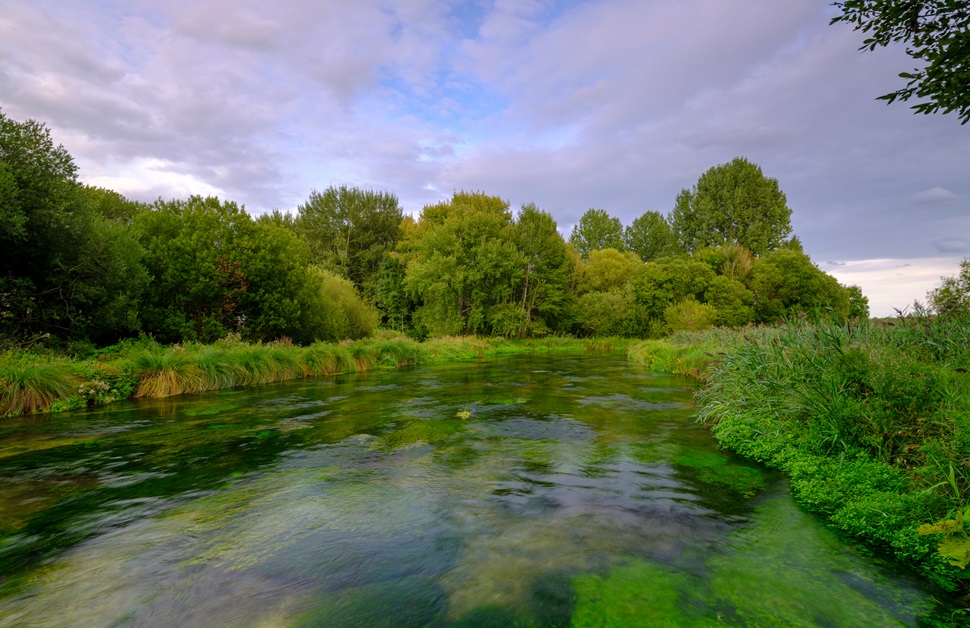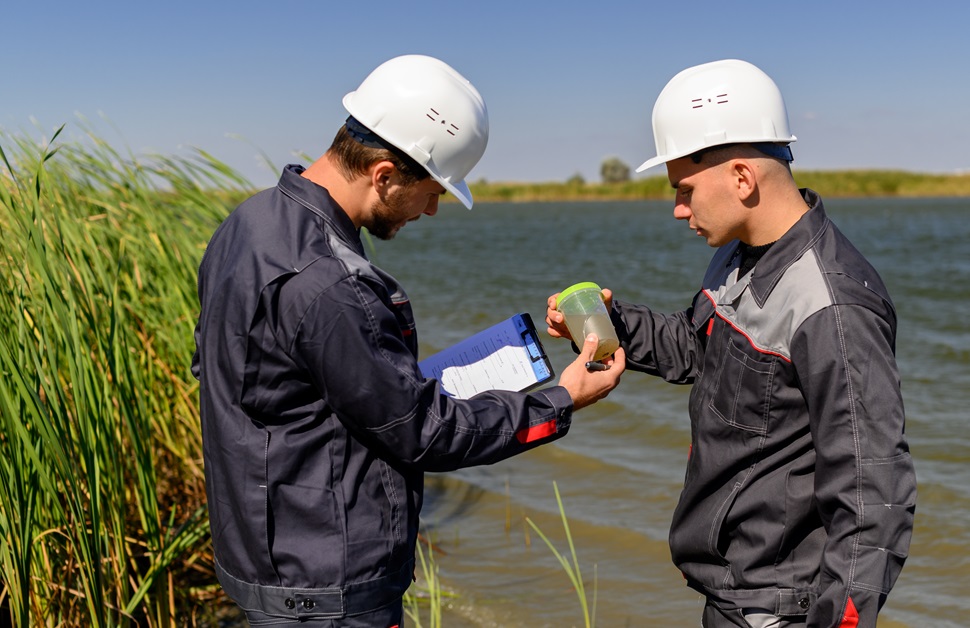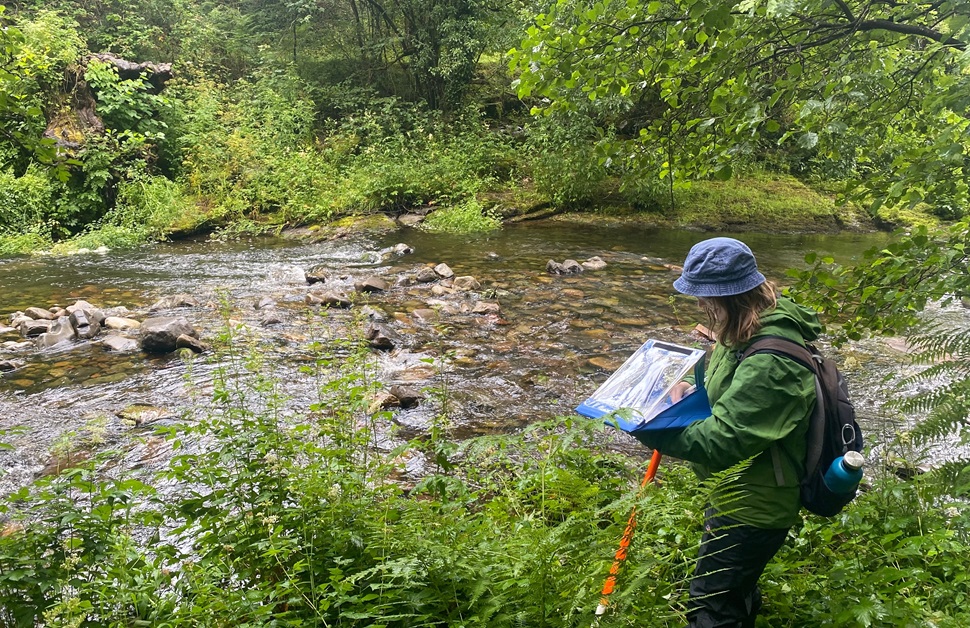
Requirement for an Evaluation of River Condition
In addition to the ecological health and biodiversity quality of grassland and woodland seen in other ecology surveys, it can also be important to determine the standard of rivers and streams. A category of ecological survey known as a river condition assessment (RCA) enables a professional ecological consultant to extensively analyse the particular river channel in question over the course of a baseline biodiversity assessment.
Many different steps and considerations go into providing an RCA assessment, and by following the process in this way, the river condition assessment specialists leading the examination can account for biological, chemical and physical factors, as well as the potential presence of protected species and invasive species. Likewise, an RCA inspection can also play a significant role in satisfying the biodiversity net gain (BNG) requirement.
What are River Condition Assessments?
A formal type of inspection, a river condition assessment (RCA) is a way of determining the health, quality and functionality of an ecosystem within specific rivers and streams. Over the course of an RCA, the ecological consultant conducting the assessment will focus on efforts to guarantee safe drinking water, manage water resources and safeguard biodiversity, all while keeping tabs on the overall ecological balance.
Various components will form a part of the RCA survey process, including biological health, chemical and physical characteristics, hydrological connectivity, and the watershed condition. Specifically within each consideration are such factors as biodiversity, channel structure, indicator species, land use, nutrient and sediment load, floodplain and upstream/downstream connectivity, vegetation cover, and water flow and quality.
Connection Between an RCA and BNG
The biodiversity net gain (BNG) policy is a new approach to development that insists on certain schemes retaining the ecological value of the site before building on it by a further 10%. An assessment to meet the BNG requirements will evaluate all baseline biodiversity features, searching for sufficient opportunities to enhance, protect or restore existing habitats, or create new habitats.
As well as patches of grassland and woodland, rivers also contribute to biodiversity value, so as a result of that, an RCA is crucial as part of the BNG process. The desk-based and field survey known as a Modular River Physical (MoRPH) survey identifies the condition indicators from the site’s rivers and streams, reflecting the current state of them as numerical figures.
Results from the MoRPH field survey can then be added to the biodiversity metric tool used for weighing up the current pre-development value of the entire site as part of the BNG assessment. The post-development value can also benefit from the RCA, as the ecological consultant will be able to gauge if any of the development plans are likely to harm the standard of nearby rivers and streams.

Methodology of River Condition Assessment Surveys
A river condition assessment involves more than just one component; instead, the outcome, findings and next steps will primarily be based on the results of multiple stages.
In the section below, we set out the process for a baseline assessment of river condition:
RCA Method Stages
Planning and Site Selection
Starting with a conversation with the developer and a review of the development plans, the ecological consultant will clarify the reason for the development, such as to partner with an ecological impact assessment (EcIA) or support the aims of mandatory BNG.
Specific locations across the river will be chosen to cover other types of conditions, including downstream, midstream or upstream. Areas of human impact are also a worthwhile consideration, and all of the selected areas will become reference points for future inspections.
Physical Condition Assessment
With consideration of potential seasonal changes and the impact of dams, diversions and other water-related features, the flow rate and hydrological patterns will be measured. Due to the effect on habitat quality for species, erosion rates and sediment levels along the riverbanks will also be recorded.
Analysis of the river’s specifications – including depth, shape, width and bank stability – will be noted down, particularly pointing out any natural or man-made changes. Reviewing possible barriers to ecological connectivity is important at this stage, as it could affect species migration or the distribution of food.
Chemical Condition Assessment
Using the key indicators of conductivity, dissolved oxygen, pH level, temperature and turbidity, water samples will be collected and analysed. The same will happen for nutrient levels, with the ecological consultant looking for causes of algal blooms and eutrophication, such as nitrogen and phosphorus.
A screening of common pollutants that are likely to appear in bodies of water will also be undertaken, specifically looking for heavy metals, hydrocarbons, industrial materials and pesticides. Such contaminants can reach the water via agricultural runoff, industrial discharges and urban wastewater.
Biological Condition Assessment
All species inhabiting the river including algae, aquatic plants, fish and invertebrates will be identified and counted. During this process, the ecological consultant will also look for invasive species, as the development could disrupt native species and threaten biodiversity value.
Part of the biological condition assessment can help with evaluating water quality and pollution levels based on the presence of certain indicator species, namely specific types of macroinvertebrates like caddisflies, mayflies and stoneflies.
Riparian Zone and Surrounding Habitat Assessment
Along the riverbanks, the coverage, health and type of vegetation will be assessed at length. The riparian vegetative cover can be massively beneficial to local wildlife, as it offers habitat opportunities, reduces erosion, and regulates water temperature by providing shade.
The land use in the local vicinity has the ability to negatively impact rivers, either through habitat fragmentation, pollution or increased runoff. Thinking about the surrounding area and what it’s being used for could be pivotal, whether it’s agriculture, forestry or urban development.
Data Collection and Analysis
All of the data recorded from the survey will be retrieved and stored for analysis, including GPS coordinates, maps, notes, photos and water samples. As a result of the indexed information, an overall rating of the river’s condition can be assembled.
A scoring system to create the river condition rating is often used, where the ecological consultant would submit a numerical score for each of the values generated before adding them up and the final result confirming the condition of the river.
Reporting Process for River Condition Assessments
Several parts make up a river condition assessment report, opening with an overview of the inspection and key metrics used to complete the process. The introduction will then lay out the objectives of the survey and details about the site and project, followed by a description of the methodology used to make the assessment – and the corresponding RCA report – reliable and trustworthy.
Findings from the evaluation will be split into the core areas of physical conditions, chemical conditions, biological health, and riparian and land use conditions. With that provided, the ecological consultant can state what the condition score was, the potential issues on the site related to the river, and what conclusions and commentary came from that.
The next steps will then be partly decided based on the developer’s objectives. If an RCA was needed in isolation as a part of a planning application, the report could be handed to the local planning authority. Alternatively, however, if the RCA was undertaken as part of a biodiversity net gain assessment, it would form a part of the biodiversity metric and feature within the BNG plan.

Booking a River Condition Assessment for Your Project
It is perfectly understandable that before booking a river condition assessment (RCA) with our team, you would want to learn more about the survey services we provide, especially the specialists conducting them, how much they cost, and all possible methods for getting in touch and requesting a quote.
Below, you should find answers to all of your questions about how we undertake river condition assessments. If, however, you have any remaining questions, please don’t hesitate to reach out to our team.
River Condition Assessment Survey Specialists
Instead of choosing a dedicated river condition assessment company, it would be advisable to refer to an ecological consultancy like Arbtech, as we specialise in countless different areas. Not only does that mean that we can carry out biodiversity net gain assessments and provide you with a plan to generate sufficient enhancements to meet the mandate, but we can also conduct any other ecological surveys you need, such as other protected species surveys on potential wildlife present.
Our team has river condition assessment survey specialists to manage the inspection process from the river-type desk study to the report. Each river condition assessment surveyor is sufficiently qualified, experienced and knowledgeable to undertake RCA surveys. The river condition assessment specialist instructed to support your development will be capable of working through every stage of the process to guide your next steps.
Costs Involved with River Condition Assessments
Between factors such as the location and size of the development site, the aims of the project and assessment and the depth of analysis needed, the price for a river condition assessment can vary. As previously mentioned, it includes several different factors that take the biological, chemical and physical elements into consideration, so the survey process can use up a lot of time and effort.
Among the countless benefits of deciding to book a survey through Arbtech is the ability for developers to get a quote that reflects the specifications of their development projects. All of the quotes we provide are bespoke based on the specific development site, and by operating in this way, we can eliminate any chance of our clients paying more than they should for our services.
Speak to Arbtech About RCA Services
If you get in contact with our team today, we can send you a free quote for a river condition assessment on your site, and from there, we can decide on a date to attend your site if you choose to move forward with us. Options to speak to our administration team include through social media, via email, over the phone or by completing a contact form on our website.
It could be that you need a river condition assessment to accompany a biodiversity net gain assessment or in preparation for a river restoration project. Whatever the case, talking to Arbtech will give you an opportunity to confirm whether it’s the right course of action before instructing our team to step in. We can then inspect the river channel, conduct the necessary pre- and post-intervention investigations, and progress your planning project.


